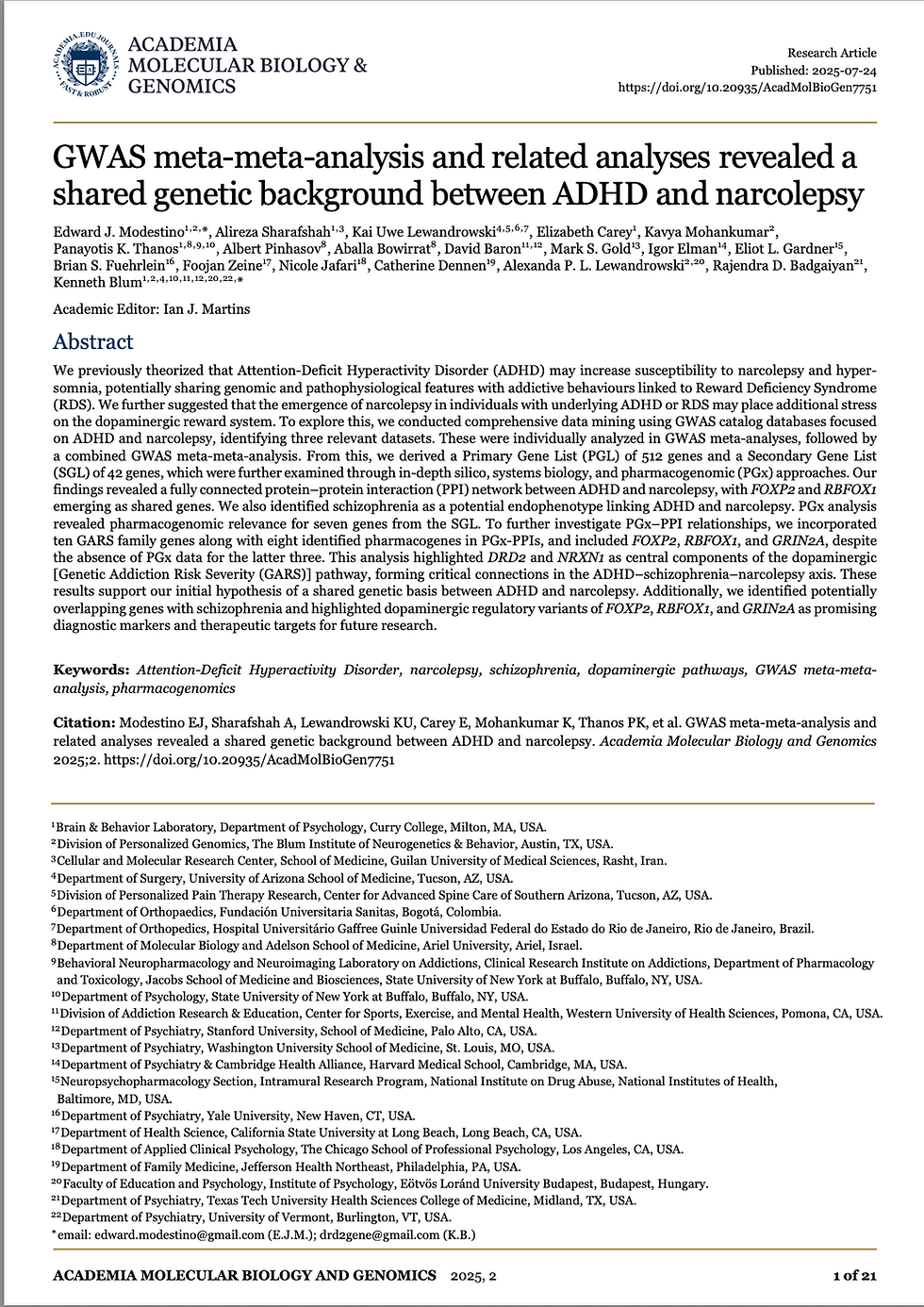Slow-Wave Sleep and Dementia: Pharmacological Interventions
- Edward Justin Modestino, Ph.D.

- Jul 10, 2024
- 2 min read

Sleep disorders, especially insomnia, increase with age and are often associated with cognitive decline. In older age, this tends to be associated with less restful sleep, specifically less slow-wave sleep (SWS) or Stages 3 and 4, which are the deepest sleep stages. This lack of SWS, as we know, is associated with Alzheimer's disease and the pathological consequences such as beta-amyloid (Amyloid beta, Aβ) accumulation. A fairly recent study (La et al., 2019) examined the long-term effectiveness of the antidepressant trazodone (antagonist of 5-HT2A and 5-HT2B receptors), often used for sleep because of its sedative properties, on potentially mediating this age-related decline in SWS, which might, theoretically, halt or even reverse AD pathology. The authors propose that trazodone, with long-term use, can increase SWS. In their study, they employed two groups of participants (age range: 74-83): (1) 25 participants who regularly use trazodone (median dosage 50 mg QHS), which include those with a diagnosis of AD, those with a notable yet mild cognitive impairment, and those without any impairment, and (2) 25 age-matched controls. The Mini-Mental State Examination (MMSE) was used to obtain a baseline level of cognitive abilities. Over the four years of the study, the age-matched control group, which were individuals not using trazodone, showed a significantly greater cognitive decline on the MMSE than trazodone users, including those with AD. The theory is that trazodone increases SWS and can halt the progression of age-related cognitive decline, even in those with AD. Of course, this study needs to be replicated with a larger group.
While waiting for larger replication studies, why not simply take this preventatively? Many life extension enthusiasts who employ preventative medical interventions would agree! Note: the therapeutic dosage used to induce sleep is, and for most in this study was, much lower than the therapeutic dosage used to treat depression.
References
La, A. L., Walsh, C. M., Neylan, T. C., Vossel, K. A., Yaffe, K., Krystal, A. D., Miller, B. L., & Karageorgiou, E. (2019). Long-term trazodone use and cognition: A potential therapeutic role for slow-wave sleep enhancers. Journal of Alzheimer’s Disease, 67(3), 911–921. https://doi.org/10.3233/jad-181145



Comments